
Goodwill has built its brand on the idea of helping people—providing jobs, supporting communities, and reselling donated items to fund it all.
But beneath the thrift store glow, former employees are speaking out. One viral whistleblower exposed practices they called “disgusting,” and it turns out they’re not alone. From alleged retaliation to shady donation handling, cracks are showing in the charity’s clean image.
It’s the kind of story that makes you second-guess dropping off that bag of clothes. Let’s unpack what these former employees have revealed—and why it’s raising eyebrows across the internet.
The Viral Whistleblower: “They Throw It All Away”
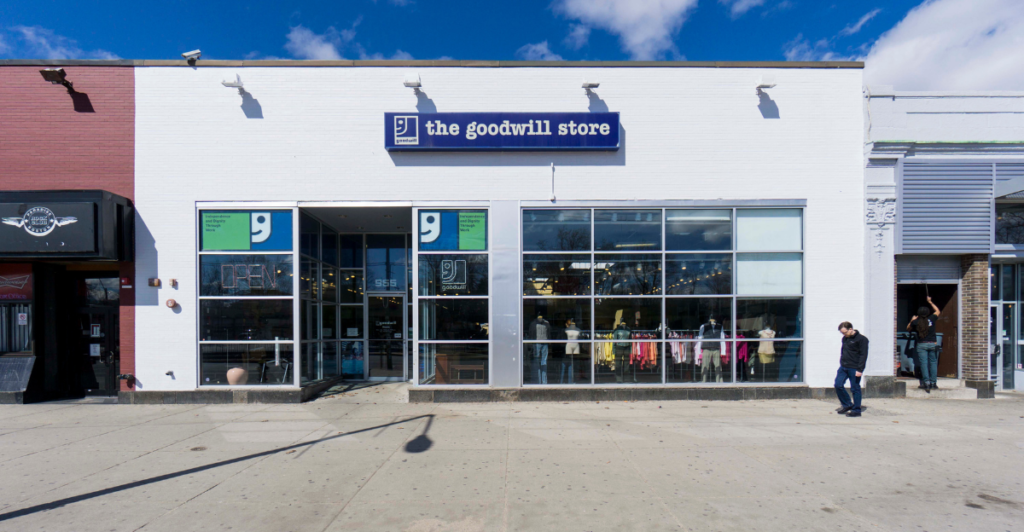
In early 2024, a now-fired Goodwill employee took to TikTok to reveal something wild: The store was allegedly throwing away perfectly good donations—electronics, clothes, and even unopened items.
The post hit millions of views. She claimed her local store would toss high-quality goods that could’ve easily been sold or donated to people in need. Not damaged, not dirty—just dumped.
People were furious. “I thought I was helping someone by donating,” one commenter wrote. And that’s the sting: when a charity trashes donations, it undermines both the mission and the donors’ trust.
The Waste Goes Deeper Than One Store
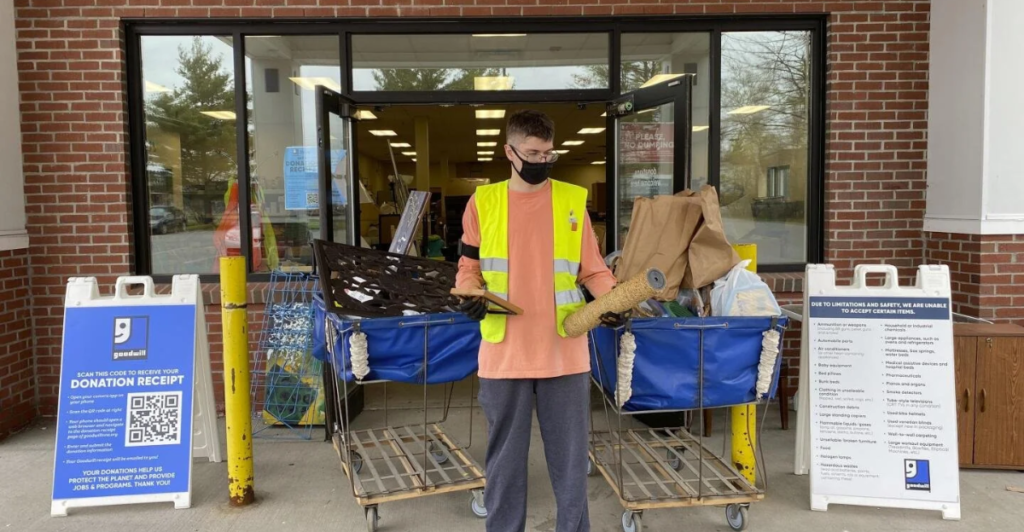
This isn’t just a rogue location issue. Former employees from multiple Goodwill stores have chimed in, backing the claim that donations are frequently discarded, even when usable.
Why? Some say it’s about shelf space and profit. Items that aren’t expected to sell fast enough allegedly get trashed because it’s cheaper than storing them. Others blame poor management or a lack of training.
Whatever the reason, people are shocked. When “donating to Goodwill” feels less like helping and more like fueling a landfill, that’s a problem, and it’s making headlines.
The “Disgusting” Details: Unsanitary Trash Dumps
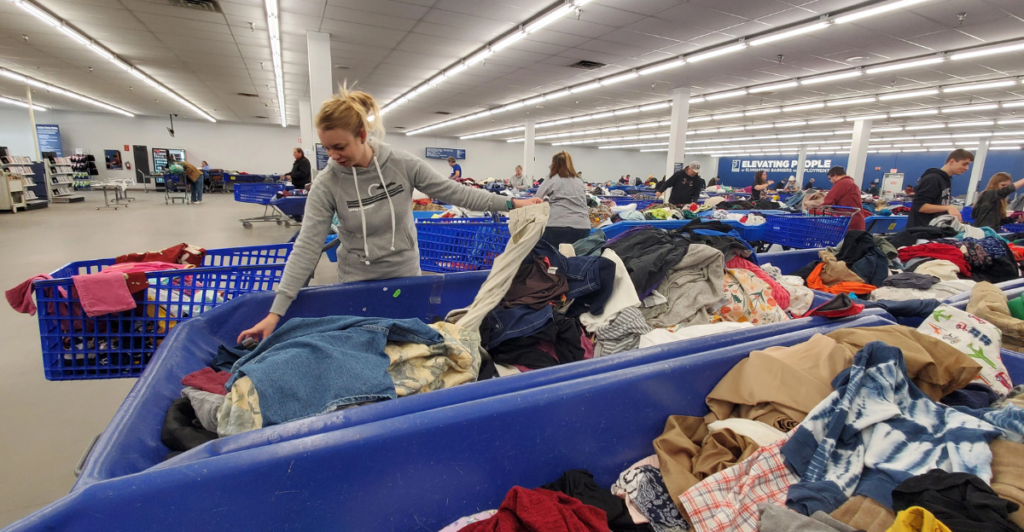
One employee claimed donations were often thrown away in bulk without being inspected. Sealed products, new shoes, even unused medical supplies were trashed. But here’s where it gets gross:
Sometimes, they’re tossed into open dumpsters with food waste and actual garbage, meaning the items couldn’t be salvaged, even by other charities.
That’s not just wasteful—it’s wasteful with a side of insult. These weren’t scraps. These were things people genuinely believed would help someone. And instead? They’re rotting in the trash behind a building with a “helping people” sign out front.
But What About the Goodwill Mission?
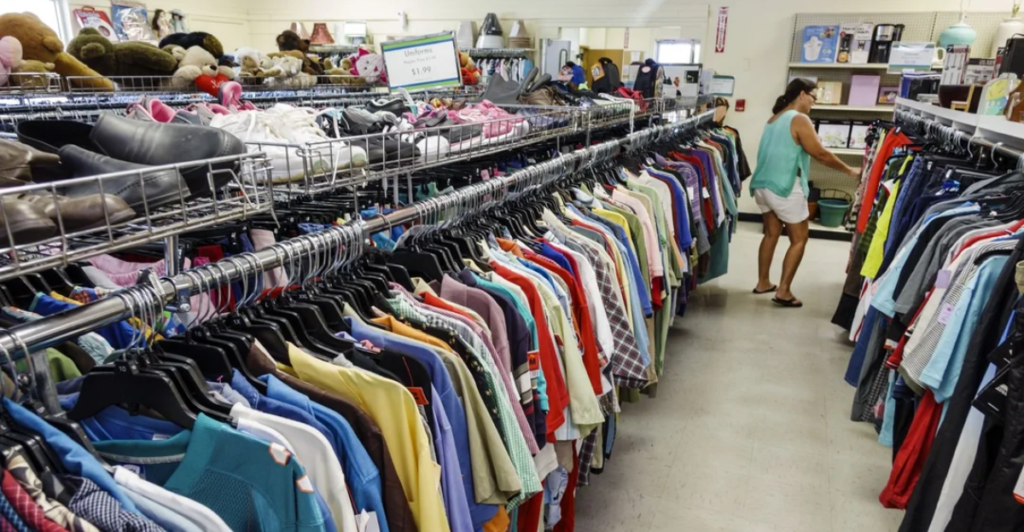
Goodwill’s entire mission is based on reselling donations to support job training and community programs. That sounds noble, and a lot of it is. But when perfectly good donations are trashed, it raises a harsh question:
Is the mission still the priority, or has profit taken over? Critics argue that pushing only high-margin items and discarding “lower-value” goods contradicts the nonprofit’s purpose.
If the goal is to help, shouldn’t giving away unsold but usable items, rather than destroying them, be a part of that? Especially when so many are in need?
Whistleblower Fallout: Fired and Silenced

Several whistleblowers claim they were fired after raising internal concerns or going public with what they saw. That includes the viral TikToker and employees from previous lawsuits across the U.S.
In Memphis, federal agents raided a Goodwill after an employee alleged fraudulent misuse of job training funds. In California, another was fired after reporting dangerous working conditions. The pattern? Speak out—get shut out.
If whistleblowers are punished instead of heard, it’s no longer just about bad practices. It’s about silencing the people trying to fix them.
The Wage Controversy: Legal But Wildly Unfair
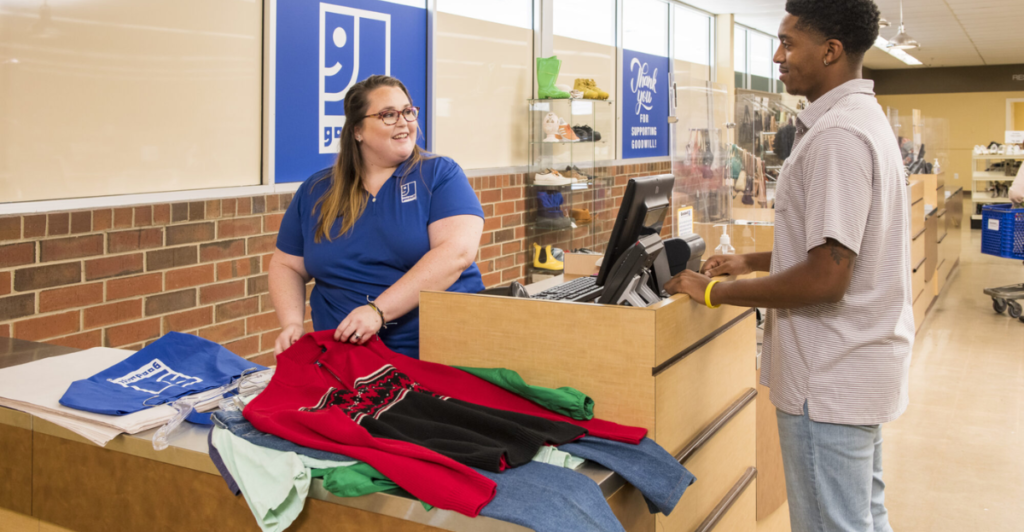
Want to hear something legal but awful? Under a federal loophole, Goodwill and other nonprofits are allowed to pay disabled employees below minimum wage.
The practice is outdated and, according to disability rights advocates, downright exploitative. While some locations have stopped, others reportedly still pay cents on the dollar for labor.
So, while the CEO earns six figures, some employees can’t afford lunch. It’s technically allowed, but morally? That’s a hard no from a lot of people. Goodwill has defended the practice as providing opportunity, but critics call it a cover for cheap labor.
Safety & Discrimination Lawsuits

It doesn’t stop at trash bins and low wages. Goodwill has faced lawsuits involving discrimination, safety violations, and even wrongful deaths.
In Sacramento, a worker was crushed by a trash compactor, prompting a wrongful death suit. Other employees have reported being injured due to unsafe equipment and poor training.
There are also legal claims that disabled employees were denied accommodations—a direct violation of the Americans with Disabilities Act. For an organization claiming to empower the vulnerable, these patterns suggest otherwise.
The Public’s Backlash

When news of these allegations spreads, people start rethinking their donations. Social media users have flooded TikTok and Reddit with “I’m never donating to Goodwill again” posts.
Some are turning to local shelters, mutual aid groups, or smaller thrift shops with transparent missions. The growing feeling? Don’t give your stuff to a place that might just trash it.
Goodwill still has defenders, but the public is waking up. If they don’t change how they operate (and treat workers), they risk losing the community trust they’ve spent decades building.
Can Goodwill Be Good Again?

This isn’t cancel culture—it’s accountability. People believed Goodwill was a place of purpose, not profit. And now, the cracks are showing.
If they want to win back public trust, transparency is step one. That means explaining donation policies, treating employees fairly, and listening to whistleblowers, not firing them.
Until then? The next time you clean out your closet, maybe skip the blue bins. There are other places, more honest ones, where your generosity won’t end up in the trash.
Explore more of our trending stories and hit Follow to keep them coming to your feed!

Don’t miss out on more stories like this! Hit the Follow button at the top of this article to stay updated with the latest news. Share your thoughts in the comments—we’d love to hear from you!